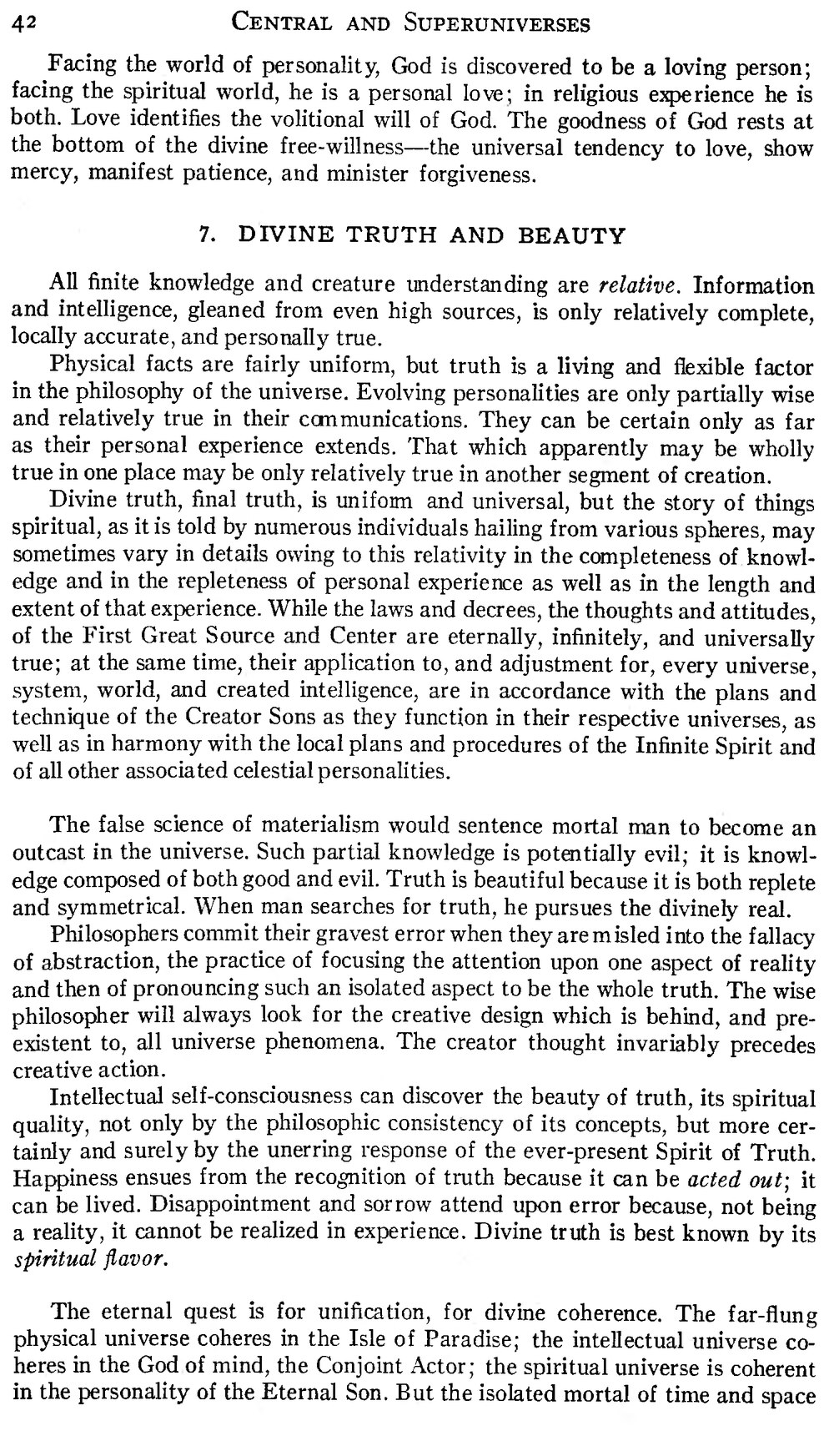Facing the world of personality, God is discovered to be a loving person; facing the spiritual world, he is a personal love; in religious experience he is both. Love identifies the volitional will of God. The goodness of God rests at the bottom of the divine free-wiliness—the universal tendency to love, show mercy, manifest patience, and minister forgiveness.
All finite knowledge and creature understanding are relative. Information and intelligence, gleaned from even high sources, is only relatively complete, locally accurate, and personally true.
Physical facts are fairly uniform, but truth is a living and flexible factor in the philosophy of the universe. Evolving personalities are only partially wise and relatively true in their communications. They can be certain only as far as their personal experience extends. That which apparently may be wholly true in one place may be only relatively true in another segment of creation.
Divine truth, final truth, is uniform and universal, but the story of things spiritual, as it is told by numerous individuals hailing from various spheres, may sometimes vary in details owing to this relativity in the completeness of knowledge and in the repleteness of personal experience as well as in the length and extent of that experience. While the laws and decrees, the thoughts and attitudes, of the First Great Source and Center are eternally, infinitely, and universally true; at the same time, their application to, and adjustment for, every universe, system, world, and created intelligence, are in accordance with the plans and technique of the Creator Sons as they function in their respective universes, as well as in harmony with the local plans and procedures of the Infinite Spirit and of all other associated celestial personalities.
The false science of materialism would sentence mortal man to become an outcast in the universe. Such partial knowledge is potentially evil; it is knowledge composed of both good and evil. Truth is beautiful because it is both replete and symmetrical. When man searches for truth, he pursues the divinely real.
Philosophers commit their gravest error when they are misled into the fallacy of abstraction, the practice of focusing the attention upon one aspect of reality and then of pronouncing such an isolated aspect to be the whole truth. The wise philosopher will always look for the creative design which is behind, and pre-existent to, all universe phenomena. The creator thought invariably precedes creative action.
Intellectual self-consciousness can discover the beauty of truth, its spiritual quality, not only by the philosophic consistency of its concepts, but more certainly and surely by the unerring response of the ever-present Spirit of Truth. Happiness ensues from the recognition of truth because it can be acted out; it can be lived. Disappointment and sorrow attend upon error because, not being a reality, it cannot be realized in experience. Divine truth is best known by its spiritual flavor.
The eternal quest is for unification, for divine coherence. The far-flung physical universe coheres in the Isle of Paradise; the intellectual universe coheres in the God of mind, the Conjoint Actor; the spiritual universe is coherent in the personality of the Eternal Son. But the isolated mortal of time and space
